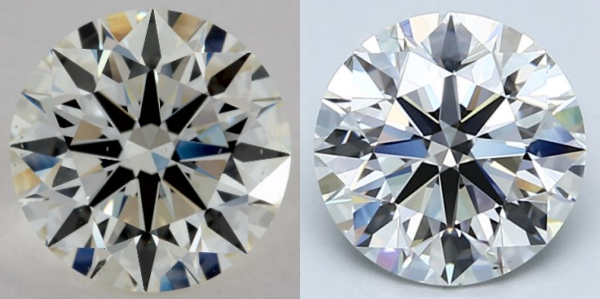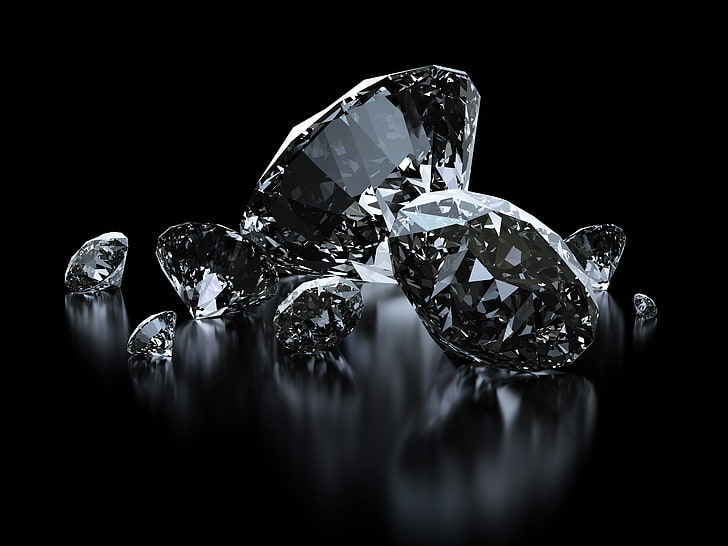When purchasing a diamond, certification is crucial to ensure authenticity and value. Two of the most recognized gemological institutes are the Gemological Institute of America (GIA) and the International Gemological Institute (IGI). If you are considering buying a lab diamond, understanding GIA vs IGI lab diamonds can help you make an informed decision.
What Are Lab Diamonds?
Lab diamonds are created using advanced technology that replicates the natural diamond formation process. They have the same chemical and physical properties as mined diamonds. However, choosing the right certification body is essential to ensure quality. GIA vs IGI lab diamonds have different grading standards, which can impact your purchase decision.
GIA Certification for Lab Diamonds
GIA is one of the most respected gemological laboratories in the world. It is known for its rigorous grading standards and commitment to diamond integrity. GIA vs IGI lab diamonds differ because GIA has stricter criteria for evaluating diamonds. It assesses cut, clarity, color, and carat weight with precision, making it the preferred choice for those seeking a highly credible certification.
IGI Certification for Lab Diamonds
IGI is another well-known gemological institute that provides certification for both natural and lab-grown diamonds. GIA vs IGI lab diamonds show differences in grading, as IGI is considered to be slightly more lenient in its evaluation process. Many retailers prefer IGI certification because it is faster and often more affordable than GIA certification.
Grading Differences Between GIA vs IGI Lab Diamonds
The primary difference between GIA vs IGI lab diamonds lies in their grading systems. GIA is known for conservative grading, while IGI tends to be more generous. This means a diamond graded by IGI may receive a slightly higher clarity or color rating than it would from GIA. If you want the most accurate representation of quality, choosing GIA certification may be the best option.
Price Considerations for GIA vs IGI Lab Diamonds
One of the main factors affecting a buyer’s decision is price. Since GIA vs IGI lab diamonds differ in grading rigor, IGI-certified diamonds tend to be priced slightly lower. This is because IGI certification is more accessible and quicker to obtain. However, diamonds with GIA certification may have a higher resale value due to the institution’s superior reputation.
Market Preference for GIA vs IGI Lab Diamonds
Retailers and buyers often have varying preferences when it comes to GIA vs IGI lab diamonds. Many high-end jewelry brands prefer GIA certification because of its strict standards. On the other hand, IGI certification is widely accepted in the lab diamond industry, making it a popular choice among online retailers. If you prioritize investment value, GIA certification may be more suitable.
Why Does Certification Matter?
Understanding GIA vs IGI lab diamonds is crucial because certification guarantees the authenticity and quality of your diamond. A certified diamond comes with a detailed grading report, which helps buyers make confident purchasing decisions. Without proper certification, a diamond’s value can be uncertain, leading to potential financial losses.
Which Certification Should You Choose?
When choosing between GIA vs IGI lab diamonds, consider your priorities. If you seek the highest grading accuracy, GIA certification is the ideal choice. However, if you prefer a more budget-friendly and widely accepted certification, IGI may be suitable. Both certifications have their advantages, and your decision should align with your needs and budget.
Final Thoughts on GIA vs IGI Lab Diamonds
Deciding between GIA vs IGI lab diamonds ultimately depends on your expectations regarding quality, price, and credibility. GIA is known for stringent grading and higher resale value, while IGI offers faster certification and affordability. Understanding these differences can help you choose the right lab diamond for your investment or personal jewelry collection. Always verify the certification of your diamond to ensure you are making a wise and informed purchase.




